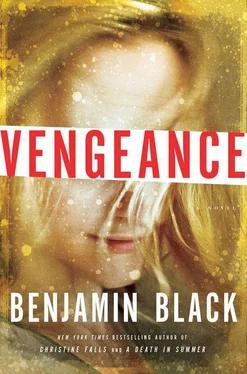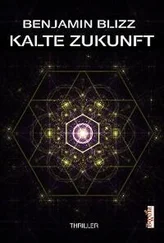Benjamin Black - Vengeance
Здесь есть возможность читать онлайн «Benjamin Black - Vengeance» весь текст электронной книги совершенно бесплатно (целиком полную версию без сокращений). В некоторых случаях можно слушать аудио, скачать через торрент в формате fb2 и присутствует краткое содержание. Жанр: Полицейский детектив, на английском языке. Описание произведения, (предисловие) а так же отзывы посетителей доступны на портале библиотеки ЛибКат.
- Название:Vengeance
- Автор:
- Жанр:
- Год:неизвестен
- ISBN:нет данных
- Рейтинг книги:4 / 5. Голосов: 1
-
Избранное:Добавить в избранное
- Отзывы:
-
Ваша оценка:
- 80
- 1
- 2
- 3
- 4
- 5
Vengeance: краткое содержание, описание и аннотация
Предлагаем к чтению аннотацию, описание, краткое содержание или предисловие (зависит от того, что написал сам автор книги «Vengeance»). Если вы не нашли необходимую информацию о книге — напишите в комментариях, мы постараемся отыскать её.
Vengeance — читать онлайн бесплатно полную книгу (весь текст) целиком
Ниже представлен текст книги, разбитый по страницам. Система сохранения места последней прочитанной страницы, позволяет с удобством читать онлайн бесплатно книгу «Vengeance», без необходимости каждый раз заново искать на чём Вы остановились. Поставьте закладку, и сможете в любой момент перейти на страницу, на которой закончили чтение.
Интервал:
Закладка:
“You’d say he did it to himself? I mean, is that the way it looks?”
Quirke pondered this. “I presume so. He was probably alive for five minutes or so after he was hit. There were just the two of them in the boat. Not a good thing to have to watch, a man lying in front of you shedding buckets of blood and the bullet hole in his chest sucking in air like a second mouth. If what’s-his-name, the young fellow, did the shooting, I’d say he would have fired again, to finish him off-wouldn’t you? The weapon wasn’t found?”
“Clancy-the young fellow-says he threw it in the sea.”
“It’s the kind of thing you’d do.”
“If it was you did the shooting. Why would he take it off the dying man and throw it away, if the man had shot himself?”
“Panic?”
The Inspector was rotating the base of his glass slowly on its coaster. “Do you ever wonder what causes it,” he said, “that cloudiness in water? Is it the what-do-you-call-it, the chlorine, or just a whole lot of little bubbles, caused by coming through the tap?”
Quirke was smiling. “You have an inquiring mind, Inspector,” he said.
The barman came and rapped the edge of a penny smartly on the bar in front of them. “Time, gents; time, please.”
In the street the afternoon sunlight fell in angled spikes and the air was grayed with exhaust smoke and drifts of summer dust. The two men walked together in companionable silence in the direction of the Bank of Ireland in College Green. There were smells of roasting coffee beans and horse manure-a Clydesdale that was tethered outside Switzers and harnessed to a green-sided Post Office dray had dropped a mound of steaming clods onto the road-and of scorched sugar from a candy-floss stall on the corner of Dame Street. It struck Quirke, not for the first time, that he and the detective had nothing to talk about beyond death and postmortems, crimes and criminals, murders and motives. What did they know of each other’s lives? Next to nothing. Yet by now they had years of shared history behind them. This was, for some reason, a slightly dispiriting thought.
“Do you know them, at all,” Hackett asked, “the Delahayes, the Clancys?”
The Inspector, Quirke knew, was of the belief that he enjoyed a wide circle of acquaintances and was intimate with important people at the highest levels of society, a notion that Quirke had long ago given up trying to disabuse him of. “I suppose I might have met Delahaye,” he said.
“Has-had-a young wife. Number two.”
“What happened to number one?”
“Died, four or five years ago. Two sons, twins, grown up now.”
They had passed the bottom of Grafton Street, and Quirke ducked into Kapp amp; Peterson’s to buy a packet of Senior Service. When he came out Hackett was waiting for him. Quirke offered him a cigarette and they lit up and walked on. The streets were crowded, this sunny summer day. “Mona Delahaye,” Hackett said, squinting across at the blue clockface above the gates of Trinity College. “That’s the widow’s name.” He hummed distractedly.
Quirke sighed, then laughed. “All right,” he said in a tone of weary resignation. “I’ll come with you.”
The Inspector turned to him in feigned surprise. “Would you do that?” It was another convention between them that Quirke had a silken tongue and could talk with ease to the gentry, while Hackett would be looked down on, laughed at, and lied to. “It might be handy, all right. Northumberland Road, big red-brick pile.”
Quirke sighed again. “What time?”
“I said I’d be out there at five.”
“And how do we account for my presence?”
Hackett gave a snuffly laugh. “I’ll introduce you as Dr. Watson,” he said.
“Very funny,” Quirke said, turning away. “I’ll see you at five.”
In the event, Quirke got there early. He had taken a taxi and was waiting on the pavement in the broad canopy of shade under a beech tree when Hackett arrived. Hackett had walked from his office in Pearse Street. He liked to walk, and nowadays, thanks to his seniority on the Force, he had the time and leisure to indulge in this simple pleasure as often as he cared to. He had come all the way up the canal along the towpath from Grand Canal Dock and turned left at Lower Mount Street onto Northumberland Road. This moneyed part of the city was spacious and handsome, but he was a countryman at heart and he missed the fields and the big skies of the Midlands of his childhood. He owned a bit of land in South Roscommon and intended to build a cottage on it to retire to. This plan he had kept to himself, so far; he would have to judge carefully when to put it to May, for May was fond of the city. All these renovations and improvements she had him making to the house were, he knew, aimed at tying the two of them inseparably to the place. He, though, would want to be rid of the city when the time came for him to retire; it had too many soiled associations for him. No, he would not spend his declining years in Dublin.
Quirke was leaning against the railing, his incongruously dainty feet crossed at the ankles and his black hat tipped over his left eye. The Inspector often wondered about Quirke’s life, what he did in the evenings, what people he saw at the weekends. A strange and solitary man. There was that actress he used to go around with-what was her name? Galloway? — and then, of course, more recently, the Frenchwoman, who had run off to France and would not be coming back.
“The widow,” Quirke said, “what did you say her name was?”
“Mona. Mrs. Mona Delahaye.”
“Mrs. Number Two.”
The red-brick house was large and plain, with tall, blank windows. They walked together along the graveled garden path and up the stone steps to the front door. A black crepe bow was attached to the knocker. The story was in the evening papers-“ DEATH OF PROMINENT BUSINESSMAN,” “MYSTERY DEATH OF DELAHAYE ”-and the Commissioner had been on the phone to Hackett already. Hackett had got the desk sergeant to say he was out and could not be contacted; he did not feel like talking to Commissioner Brannigan, and anyway he had nothing to tell him.
He pressed the bell.
The maid was a raw-faced girl with freckles and a mop of rust-colored curls. When Hackett identified himself she gave them both a jaunty grin that seemed to belie the black bow on the door, and went ahead of them along the hall, her uncorseted haunches joggling. The drawing room was at the rear of the house, with a tall window at the far end of it that looked into the garden. There was a bowl of roses on a sideboard, their musky fragrance mingling with the sharper tang of an expensive perfume.
Mona Delahaye was standing to one side of the window, facing into the sunlit garden-a deliberate pose, Quirke felt sure. She wore a green silk jacket over a calf-length black skirt. She delayed a beat before turning to them with a strained expression in her lustrous, Oriental eyes. Her rich dark hair, drawn back from her face, seemed to have lights like fireflies glinting in its depths. The two men stood a moment lost in contemplation of the vision of meticulously groomed and painted beauty that she was. Then the Inspector stirred, clearing his throat.
“Mrs. Delahaye,” he said. “I’m sorry for your trouble. This is Dr. Quirke.”
Hackett had taken off his hat and, not knowing what to do with it, was holding it behind his back, nervously rotating the brim. His inveterate blue suit, Quirke noticed, had a higher shine than ever at the elbows and the knees; he did not care to think what the seat of the trousers would look like.
Mrs. Delahaye came forward, barely glancing at the Inspector but looking Quirke up and down with her cool and candid gaze. She gave him her limp pale hand to shake and let it linger in his for a moment longer than occasion required. “A doctor,” she said, “I see,” though it was not clear what she thought she saw. She went to the sideboard and took a cigarette from a mother-of-pearl box there and lit it with an ornate silver lighter the size of a billiard ball. Trailing smoke, she walked to a sofa opposite the window-Quirke watched her narrow shoulder blades flexing like folded wings under the silk of her jacket-and sat down, crossing one knee on the other and detaching a flake of tobacco from her lower lip.
Читать дальшеИнтервал:
Закладка:
Похожие книги на «Vengeance»
Представляем Вашему вниманию похожие книги на «Vengeance» списком для выбора. Мы отобрали схожую по названию и смыслу литературу в надежде предоставить читателям больше вариантов отыскать новые, интересные, ещё непрочитанные произведения.
Обсуждение, отзывы о книге «Vengeance» и просто собственные мнения читателей. Оставьте ваши комментарии, напишите, что Вы думаете о произведении, его смысле или главных героях. Укажите что конкретно понравилось, а что нет, и почему Вы так считаете.












